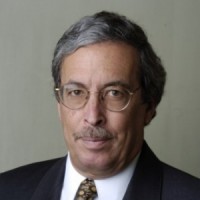
© skierscott
The words of Paul Simon’s 1964 song have always intrigued me. How can silence have sounds? How does one warmly welcome what one cannot see as he begins “Hello darkness my old friend”? I understood what he meant by “The words of the prophets are written on the subway walls/ And tenement halls;” I quoted that as an epigraph in my undergraduate thesis in religion. But I am most intrigued when Simon writes:
“People talking without speaking,
People hearing without listening”.
When we turn on the news, flip through the pages of newspapers or download blogs, we are overwhelmed with sounds and words. People are talking to us, but are they talking without speaking? Are we hearing without listening? What would it mean to speak instead of talk? What would it mean to listen instead of hearing? How can we listen to the sounds of silence?
As a thought experiment, try going through the news with me. There are the headlines; there are the breaking news stories. After all, people want to be kept up-to-date about what is going on. The news people keep us informed 24/7 of happenings around the world. From time to time the media does help us revisit the past; the fourth anniversary of the beginning of the war in Syria; a retrospective on the life of a famous individual like Hans Erni. Here the past mixes with the present. But this is very rare. We are usually overwhelmed by the present.
What if we want to listen to the sounds of silence? What if we want to speak instead of talking? What if we want to listen instead of hearing? What would that mean? If we follow our thought experiment, it would mean reflecting on what the 24/7 news cycle is not telling us. For example, people living in Western Sahara have been living in what is called a non-self-governing territory since the 1975 Madrid Accords. Various resolutions have been passed; numerous special representatives have been named. Those living in primitive camps in the desert are still waiting for a referendum to determine their official status. A similar unresolved situation could be said of Nagorno Kharabakh and the one million displaced in Azerbaijan. The OSCE Minsk Group has been meeting since 1992 with no success in resolving this conflict between Armenia and Azerbaijan.
These unresolved conflicts are not in the headlines. We do not listen to them because we are too busy with other immediate situations, professional and personal. We can only absorb so much. The 220,000 killed and the 11 million displaced in Syria are already difficult for us to comprehend. Four generations of Palestinians in refugee camps stretch the imagination. In a globalized world, we have difficulty understanding or even considering what are our “duties beyond borders,” in Stanley Hoffmann’s phrase. We hear the current news. We have no time to listen to the sounds of silence.
To begin to listen can be depressing. The international lawyer, Richard Falk, has an interesting take on this problem. From 2008 to 2014 he was the United Nations Special Rapporteur for the “the situation in the Palestinian territories occupied in 1967.” He has been vilified for his condemnations of Israel and calls for respecting the rights of Palestinians. In delivering the recent Edward W. Said Memorial Lecture (video below), he referred to Said’s essay “On Lost Causes”. Falk said: “… that while Israel is winning one war due to its military dominance and continuous establishment of facts on the ground, Palestine is winning what in the end is the more important war, the legitimacy struggle that is most likely to determine the political outcome… It turns out that in recent history it is the side with the greater perseverance and resilience, not the side that controls the battlefield that wins in the end.”
In arguing for the validity of lost causes, Falk is convinced that “it is only lost causes that have the empowering potential to address the challenges of confronting humanity.” In other words, he is advocating that “burning faith in the unrealizable creates the possibility, however remote, that what seems beyond reach will at some point be reached.” More specifically, Falk said that ”… a dedication to what seems impossible from a realistic perspective, is in truth the only realism with emancipatory potential.”
Is listening to the sounds of silence a lost cause? Does trying to speak instead of talking reflect a “burning faith in the unrealizable”? Falk’s dedication to lost causes is admirable. He early on condemned the Vietnam War; he went to Iran during the hostage crisis; he has unflinchingly stood up for the rights of the marginalized and downtrodden. Richard Falk has an unbounded faith that there will be justice in the long run, that lost causes are never fully lost.
Can we listen to silences? Can we speak instead of talking? Can we listen instead of hearing? Are these all lost causes? Maybe so. But maybe we should all try.
The article had first been published on Daniel Warner’s blog, hosted by la Tribune de Genève.




Laisser un commentaire
Soyez le premier à laisser un commentaire